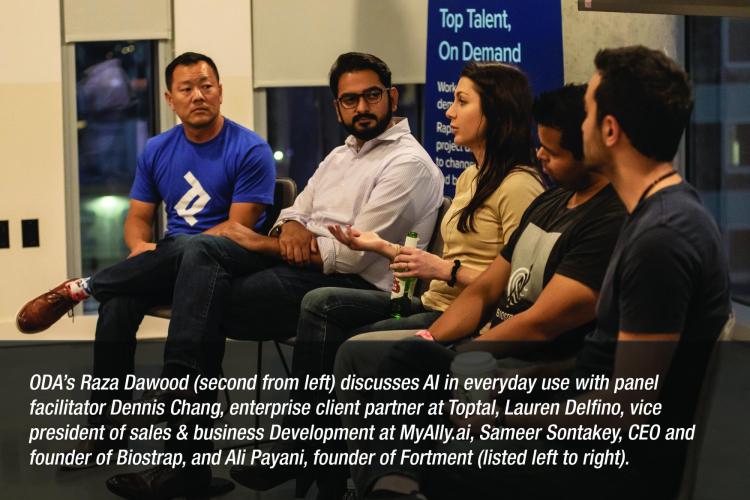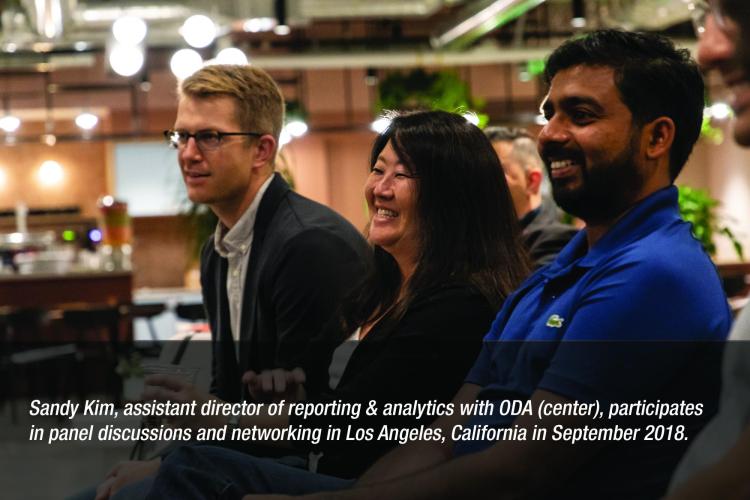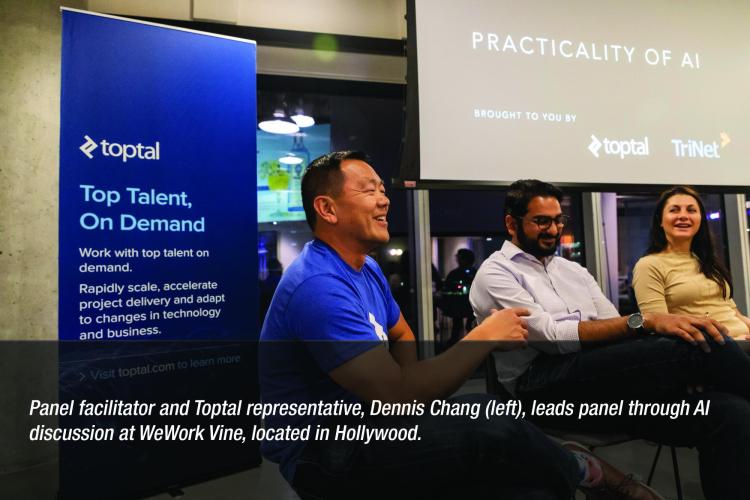


Raza Dawood, Office of Data Analytics' (ODA) director of reporting & analytics, was recently invited to serve on the “Practicality of AI” panel in Los Angeles, California. The four person panel was sponsored by Toptal and TriNet and centered on AI (artificial intelligence) in everyday use. Panelists included Dawood, as well as the CEO and founder of Biostrap, the vice president of sales and business development at MyAlly.ai, and the founder of Fortment. The panel was well-attended, with expertise ranging from novice to seasoned data scientists and chief technology officers.
“AI is a simulation of human intelligence intended for problem solving, understanding language, etc., and requires the use of algorithms and data at a very high scale,” says Dawood. “While CU Boulder’s problems are not yet so complex that we require AI to assist in transactions and make decisions, machine learning does play a big role. ODA uses machine learning algorithms to find patterns in data for the purposes of understanding relationships or making predictions.”
Through their discussion, Dawood provided a unique perspective, representing the only non-profit business, as well as a higher ed institution. He focused primarily on ethics of data usage to improve client experiences, including students, faculty, staff and alumni.
“The first question you should ask yourself is ‘What constitutes data?’” says Dawood. “For instance, a CU Boulder admissions essay is currently only used for admissions decisions, but can we use the information given in the essay to better understand an applicant, and later offer personalized experiences based on this information?” Following this example, a potential student’s admissions essay about community service and the positive impact it’s had on their life could later be used to send recommended on-campus student organizations and upcoming events centered on community service. “Research has shown that students who feel they belong are more likely to succeed at a higher ed institution. With student success being a driving factor, and the understanding this information is protected within our institution, it could open doors to better personalize a student, faculty or staff’s experience.”
Dawood also shared that panel attendees were interested in knowing why higher ed as an industry should use machine learning, and how CU Boulder uses all its data, as there is so much of it. “These questions are related from my point of view. We aren’t trying to sell students new sneakers, but rather looking to improve their experience by using the data at hand. One of our goals in ODA is to support decision making through ethical, precise and sophisticated use of data. We have the opportunity to provide actionable information through machine learning, using all the data at hand, and develop tools to deliver those insights at a campus or department level.”
Learn more about ODA’s contributions to CU Boulder and the tech industry at www.colorado.edu/oda.

